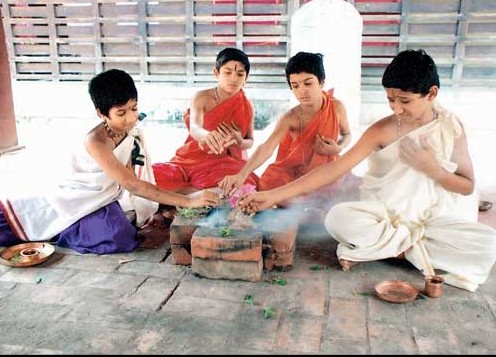Thanks to the systematic growth of Sanskrit and the ritualistic training regimen adopted by a few institutes all over the country, vatus (young scholars) have now been gainfully employed in the US, Canada, parts of Europe and Australia. One of the institutes that has taken this requirement seriously is Sri Vadiraja Research Centre at Udupi, which has been accredited as an official research centre by the Karnataka State Sanskrit University at Bangalore.“This accreditation has given a new dimension to vedic education and opened up avenues to young graduates and school students to take up vedic rituals as a profession. There was a big gap between demand and supply and our community people—who are now spread over the world—were finding it difficult to engage a purohit (priest) for their religious functions. Today, however, youngsters have taken education in these matters seriously and many of them are now enriching the lives of Hindus all over the developed world,” said Gopalacharya, director, Sri Vadiraja Research Institute.“Many youngsters who have studied Sanskrit have the key to the knowledge of finding inner fulfillment and peace, the kind of studies that the Sri Vadiraja Institute of Research has immense scope with. That said, there is also the need for speedy development of infrastructure and human resources in this field, if we have now decided to take it further,” explained Srinivas Varakhedi, director, Sanskrit education, Karnataka State Sanskrit University.
The institute also works in co-operation with the National Institute of Vedic Sciences at Bangalore.
“The vision of the institute was to give legal academic competence to these courses, which will then help these students get economic support. An average family that depends on pourohitya [the performing of priestly duties] and jobs as archaks [priests] in temples still struggles to make two ends meet. These students are keen on continuing the traditions followed by their families, but it is the job of society to create a situation and give them skills to do it. That is what we hope to achieve,”
Gopalacharya added.
source































